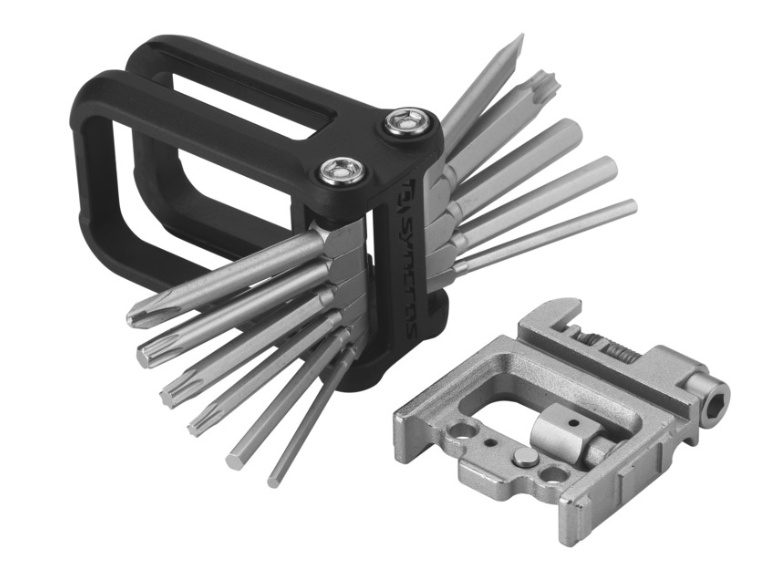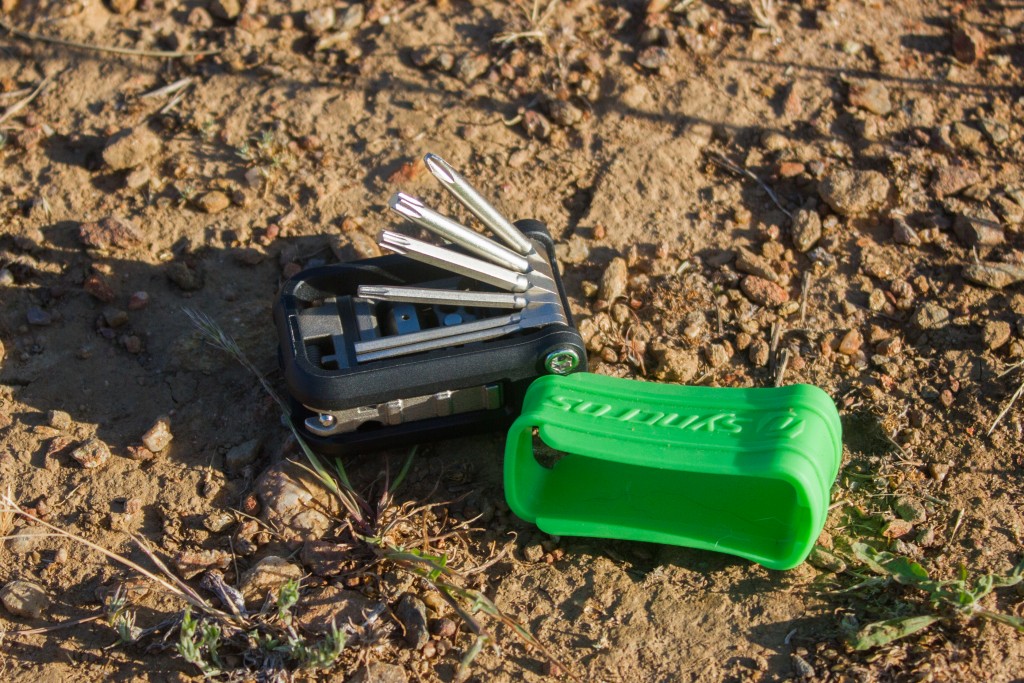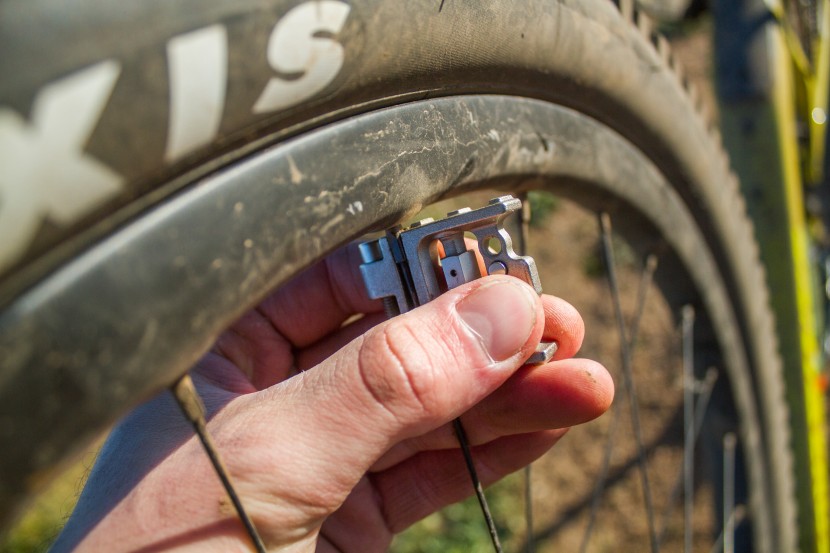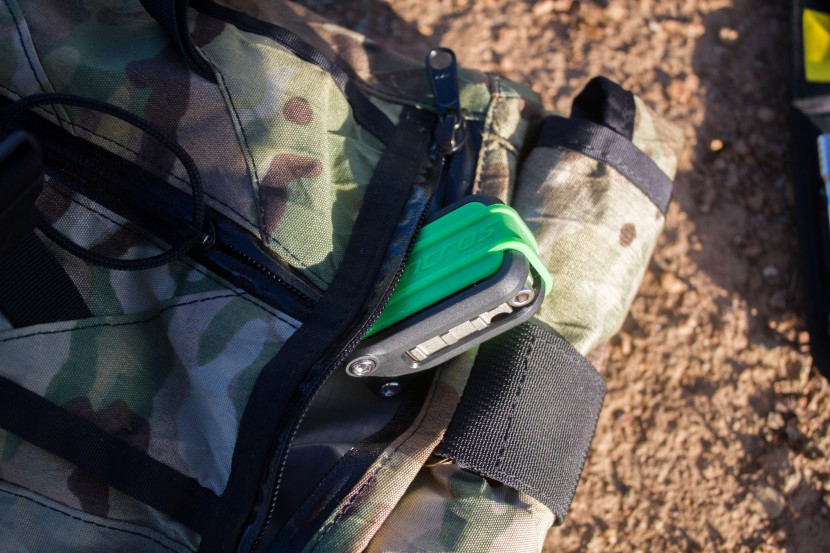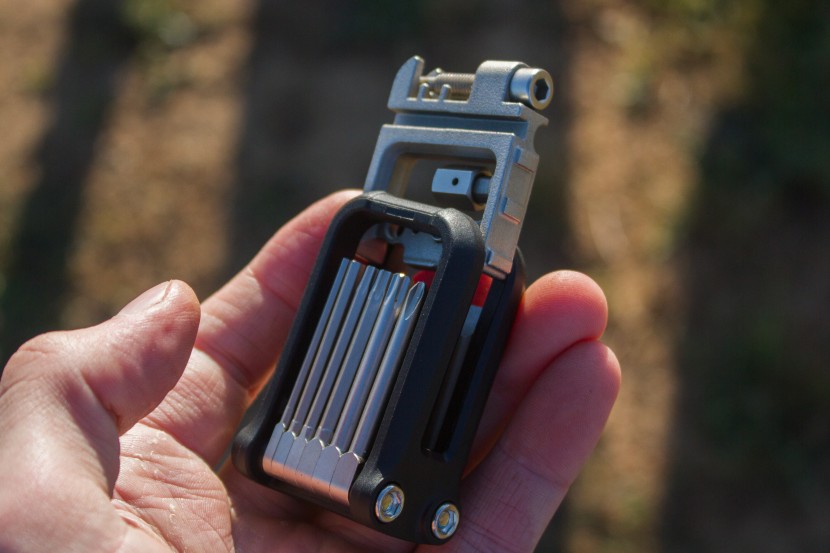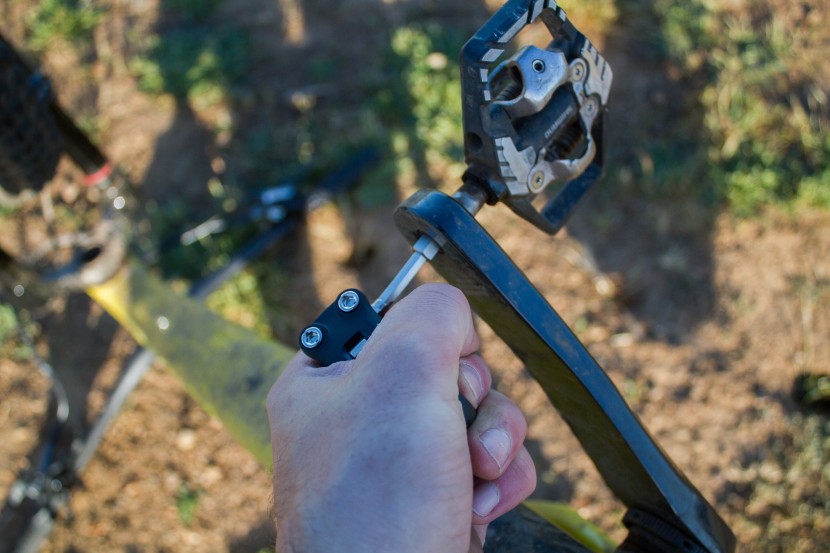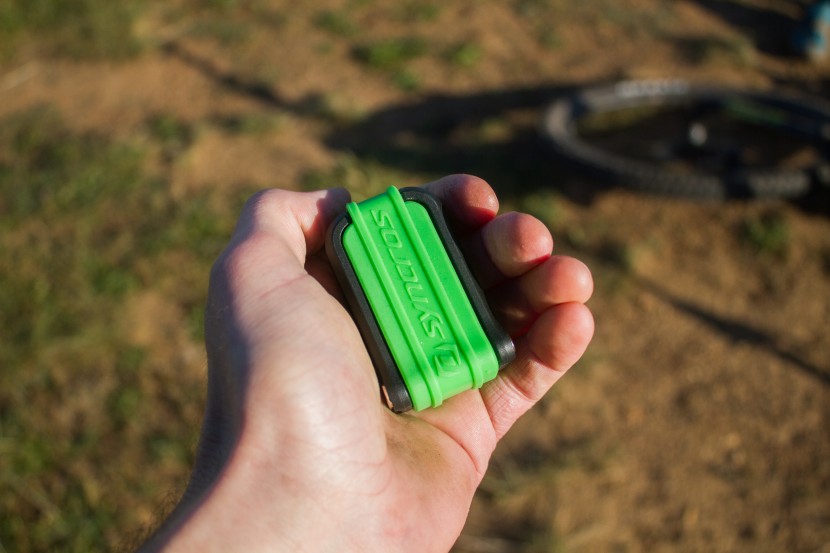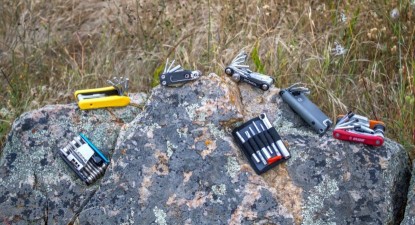Syncros Matchbox 16 Review
Our Verdict
Our Analysis and Test Results
Founded in 1986, Syncros has been around since mountain biking's infancy. Today they make a wide range of components and accessories for both road and mountain biking, including a full line of multi-tools. The Matchbox 16 is one of their most popular models, striking a good balance between capability and portability. While we didn't find anything particularly outstanding to note, it made for fast, easy, and reliable trailside adjustments throughout the testing process.
Performance Comparison
Features
With 16 features catered to modern bikes, the Matchbox 16 is no slouch when it comes to taking care of trailside issues. Large suites of hex and Torx wrenches make up the foundation of this model's tool selection. With T10, T20, T25, and T30 wrenches, it has the largest Torx selection of any model we tested. Component brands are using more and more Torx-head bolts these days, so Syncros made sure that the Matchbox 16 will stay relevant if the trend continues. The 2, 2.5, 3, 4, 5, and 8mm hex wrenches will have you covered for most operations. The occasionally-used 6mm size is missing, but we were able to get by without it for all of our trailside dissections.
Beyond the Torx and hex wrenches, the Matchbox 16 dives into some less commonly used, but still essential tools. The chain breaker, which we think is a must for any tool worth its salt, is a separate piece that pulls out from the center of the tool's frame. It includes three spoke wrench sizes and a magnetic chain link holder that works wonders in keeping things tidy when fixing your chain.
Ergonomics
The designers at Syncros did a good job of keeping this tool ergonomic despite the small size and number of functions. Unlike traditional, double-sided multi-tools, the Matchbox 16's tools all fold out from the same end of the frame. This means that the frame, which becomes your wrench handle once the tool is folded out, doesn't have any rivets or bolts on the handle end, making it a comfortable grip on which to apply pressure. The smooth plastic frame doesn't create pressure points on the palm under heavy torque, and the long wrenches allow you to access hard-to-reach places on your bike.
The frame is one of the shortest in our test at 2.5 inches long, meaning that it can be hard to get enough leverage for high-torque operations. Our pedal removal test was particularly challenging with this tool, but we were able to get it done. For most operations, you don't need nearly as much leverage as pedal removal, and we had no trouble with those.
Portability
The Matchbox 16 is easy to slip into a pack or saddlebag, but it certainly isn't the biggest space saver we tested. The full 2.5 x 1.6 x 1.3-inch package weighs in at 136-grams. Despite its small overall size, we found that the boxy shape takes up more space and is slightly harder to pull out and pack away than the larger, low-profile models we tested. We also quickly realized that the bulky shape and mid-pack weight didn't make for comfortable transport in a shorts, bib, or jersey pocket. Design-wise, the Matchbox 16 is similar to the highly-portable Topeak Ninja 16+, so we were surprised when the Matchbox didn't disappear in a pocket the same way.
Ease of Use
The Matchbox 16's straightforward layout makes for fast and easy trailside repairs and adjustments. The tools are arranged neatly and roughly according to size when everything is folded away, so it's easy to locate the wrench size and type you need in a snap. When it comes time to break a chain or true a wheel, the chain tool piece pulls easily out of the center of the frame.
If you decide to use the included rubber cover, the tool becomes ever-so-slightly more difficult to use. Even though the cover is relatively easy to remove and replace, the added steps to your repair process can be a pain in the neck when you're in a hurry to get moving. In testing, we found that the tools folded into the frame neatly and securely enough to make the rubber cover unnecessary. The rubber also tends to pick up a lot of dust, lint, and grime when you store it in a pack and leave it in the dirt during a repair.
Durability
The Matchbox 16 is clearly well made and should last you as long as you can manage not to lose it (We've lost our fair share of multi-tools over the years). After testing, the tool tips showed no signs of wear, and no play had developed in the plastic body or any of the wrenches.
We have just one durability concern with this model. The chain tool acts as a backbone for the plastic frame, and when it is removed, the frame becomes very flexible. The first time we went to break a chain, we noticed that the whole frame flexes torsionally when you're punching out a chain pin. After a few chain pin removals, we didn't notice any damage to the frame, and when the chain tool is replaced in the center, the problem disappears. This isn't a huge concern since chain breaking is a rare operation, but we would be remiss if we didn't mention it.
Value
Like the rest of its measurables, the Matchbox 16's price sits right in the middle of the pack. Given its tool suite and solid performance, we think that it's a good value, but there are slightly less expensive tools like the Blackburn Tradesman and Fabric 16 in 1 that offer better performance at a lower price. If your bike has a wide range of Torx bolt sizes, this might be the tool for you. Otherwise, we think some of the other tools we looked at are better options.
Conclusion
The Matchbox 16 is a solid all-around tool that reliably helped us out of trailside jams in testing. Its features and design didn't blow our minds, but it got the job done quickly and easily when we needed it.


